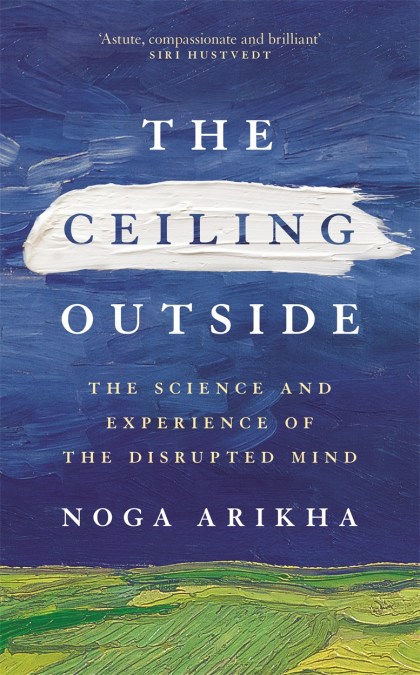As her mother slips into the fog of dementia, a philosopher grapples with the unbreakable links between our bodies and our sense of self.
Vanessa wakes from a coma having forgotten ten years of her life. Toussaint, is haunted by voices. Thomas no longer knows how to answer questions and Claire, a retired teacher loses the use of her right hand because of an inexplicable pain.
Noga Arikha began studying these patients and their confounding symptoms in order to explore how our physical experiences inform our identities. Soon after she began her work, the question took on unexpected urgency, as Arikha’s own mother began to show signs of Alzheimer’s disease.
Weaving together stories of her subjects’ troubles and her mother’s decline, Arikha searches for some meaning in the science she has set out to study. She explores how the self studies itself and how it loses itself, delving into the scientific research that can help us understand how deeply interconnected are our minds and bodies. The result is an unforgettable journey across the ever-shifting boundaries between ourselves and each other.
Vanessa wakes from a coma having forgotten ten years of her life. Toussaint, is haunted by voices. Thomas no longer knows how to answer questions and Claire, a retired teacher loses the use of her right hand because of an inexplicable pain.
Noga Arikha began studying these patients and their confounding symptoms in order to explore how our physical experiences inform our identities. Soon after she began her work, the question took on unexpected urgency, as Arikha’s own mother began to show signs of Alzheimer’s disease.
Weaving together stories of her subjects’ troubles and her mother’s decline, Arikha searches for some meaning in the science she has set out to study. She explores how the self studies itself and how it loses itself, delving into the scientific research that can help us understand how deeply interconnected are our minds and bodies. The result is an unforgettable journey across the ever-shifting boundaries between ourselves and each other.
Newsletter Signup
By clicking ‘Sign Up,’ I acknowledge that I have read and agree to Hachette Book Group’s Privacy Policy and Terms of Use
Reviews
Noga Arikha is that rare author whose deep knowledge of philosophy, science, and the arts allows her to move deftly from the quandaries of medical diagnosis and the scientific ideas that inform them to the intimate narratives of people afflicted with illnesses that threaten the coherence of that mysterious thing we call "a self." Astute, compassionate, and brilliant, The Ceiling Outside is finally an adventure story in the bewildering drama of being
Noga Arikha is a poet and a painter with the soul of a scientist. Trust her to guide you through a study of suffering and healing that will leave you humanly richer and, wonder of wonders, at peace with yourself
With grace, rigour and imagination, Arikha brings together the languages of mind, brain, and embodied human experience to give us a book that fascinates on every page
A moving journey to the roots of the self, which uniquely combines the author's deep knowledge of its neuropsychological foundations with a touching humanistic sensibility. A must read
A luminous, intellectually dense meditation on mind
Like Oliver Sacks and the neuroscientist Antonio Damasio, Arikha structures her exploration of these larger questions around individual cases. Each is fascinating not only in itself, but also as an opportunity for Arikha to expand on the historical and social understandings of particular ailments, and of the evolution of those understandings
Arikha has a gift for making scientific technicalities digestible by baking them into irresistible narratives and wise reflections . . . Arikha is a formidable scholar of medicine. As an impartial observer, she regards the history of the human sciences as inclusive, across both time and place, and it is refreshing to hear about traditional philosophical topics such as the mind-body problem or the distinction between the normal and the pathological from non-Western and premodern perspectives.

